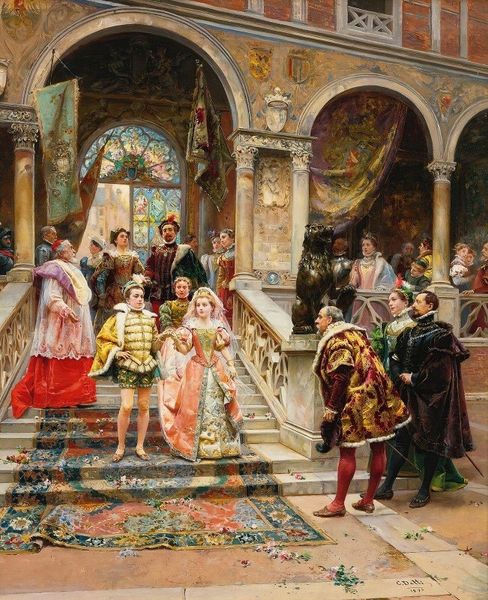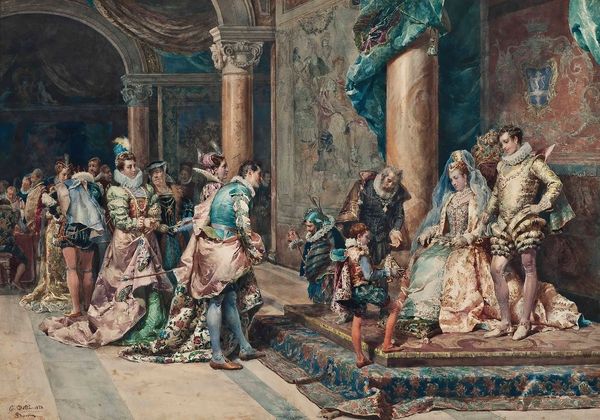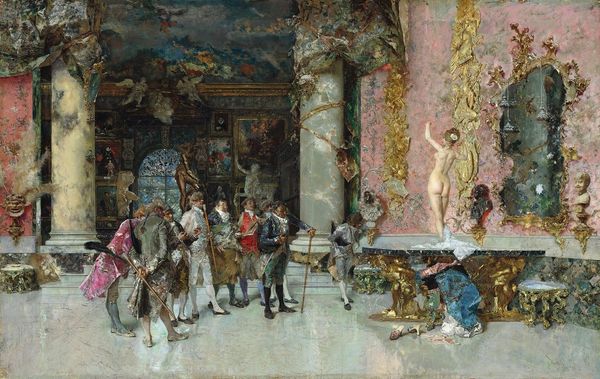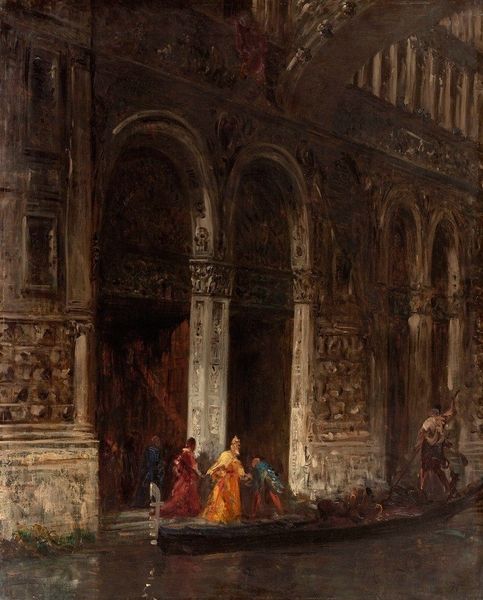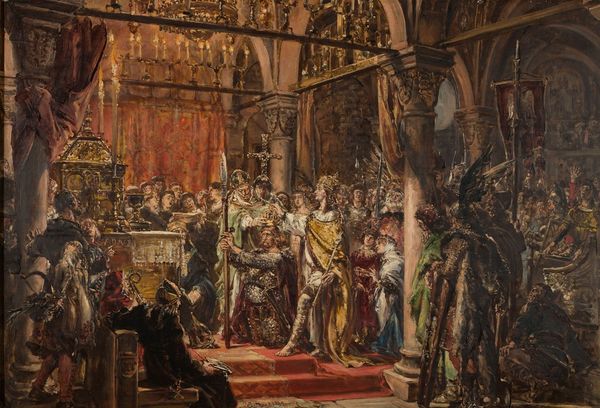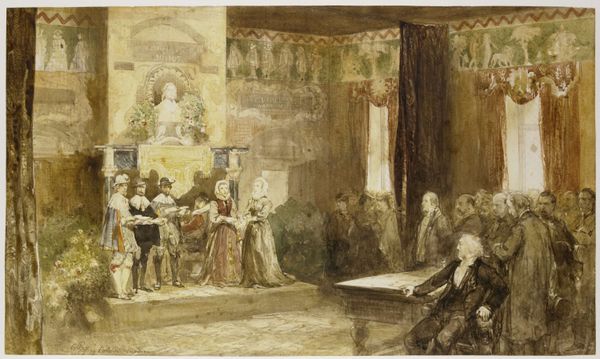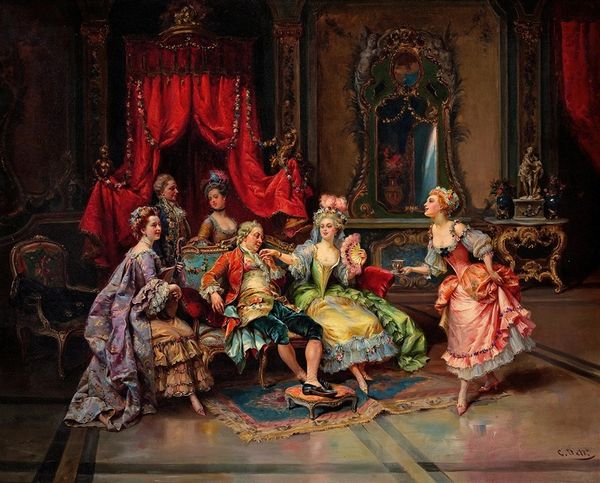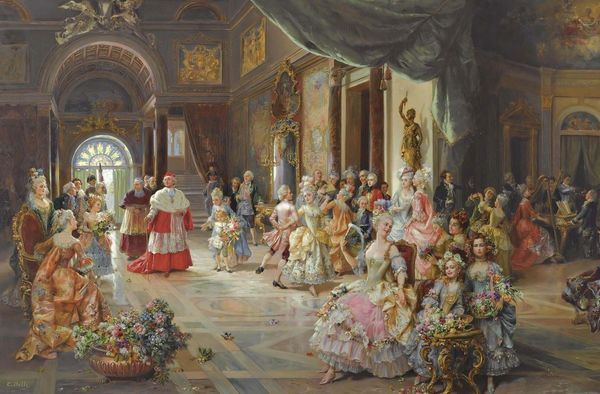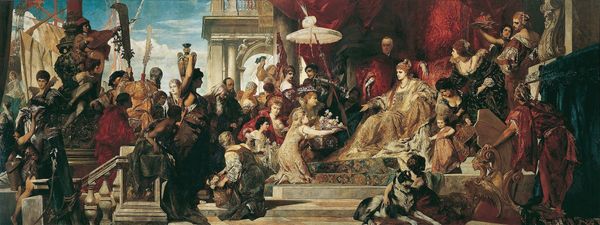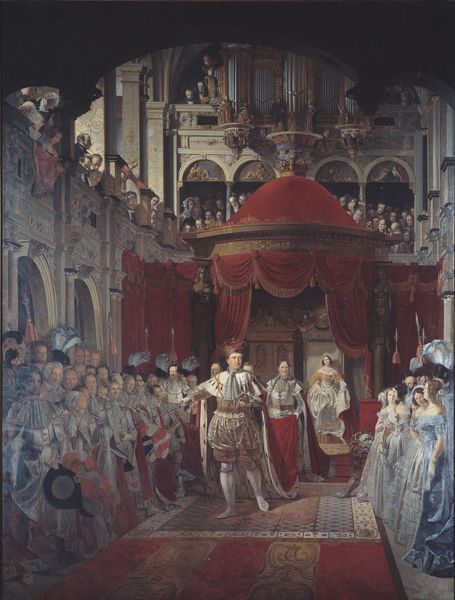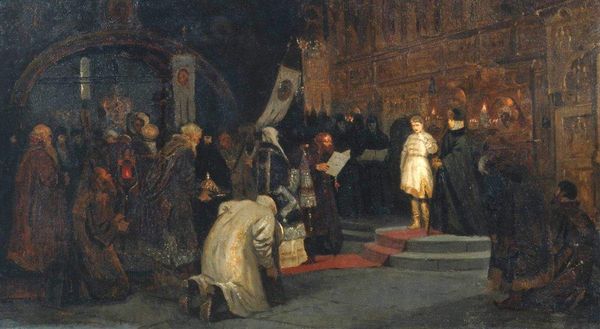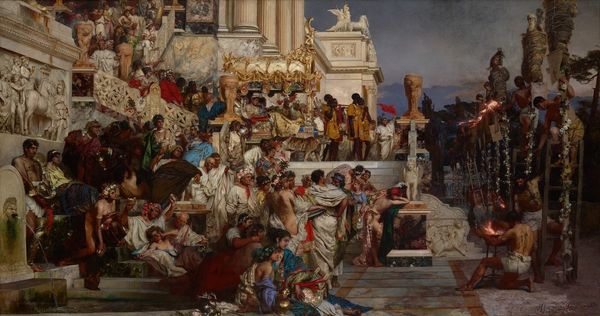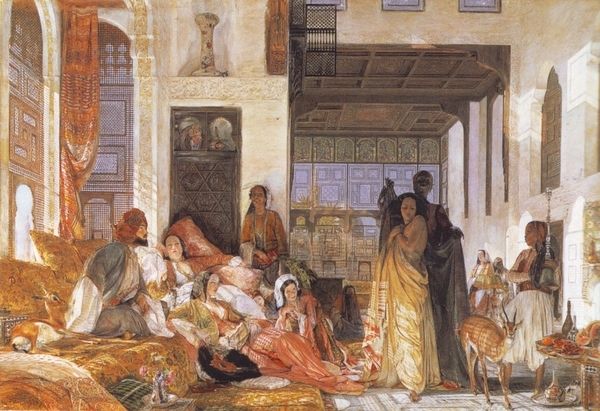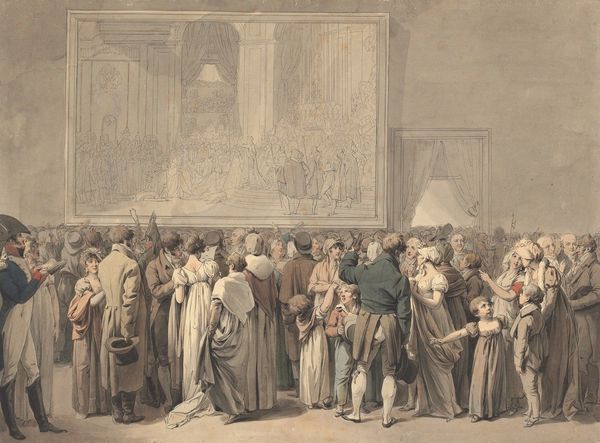
painting, oil-paint
#
portrait
#
figurative
#
venetian-painting
#
baroque
#
painting
#
oil-paint
#
figuration
#
coloured pencil
#
underpainting
#
painting painterly
#
genre-painting
#
history-painting
#
academic-art
Copyright: Public Domain: Artvee
Cesare Auguste Detti painted this scene of Henri III received by Doge Muccinigo at the Foscari Palace. We might consider it in the context of French-Italian relations and the place of spectacle in solidifying political power. Here, Detti represents a specific historical moment with the kind of detail that speaks to his later nineteenth-century audience’s interest in historical accuracy and pageantry. Notice how the artist meticulously renders the architecture of the Foscari Palace and the clothing of the dignitaries, which is intended to evoke a sense of historical authenticity. But the painting also reflects the artist's present. In its own time, the painting serves as a reminder of past power and perhaps a commentary on the then-current political landscape of Europe. To fully understand the painting, one might research the political climate of both 16th-century France and late 19th-century Europe and consider the function of historical painting within the institutions of art at that time. Through this we can see art as part of an ongoing dialogue between past and present.
Comments
No comments
Be the first to comment and join the conversation on the ultimate creative platform.
